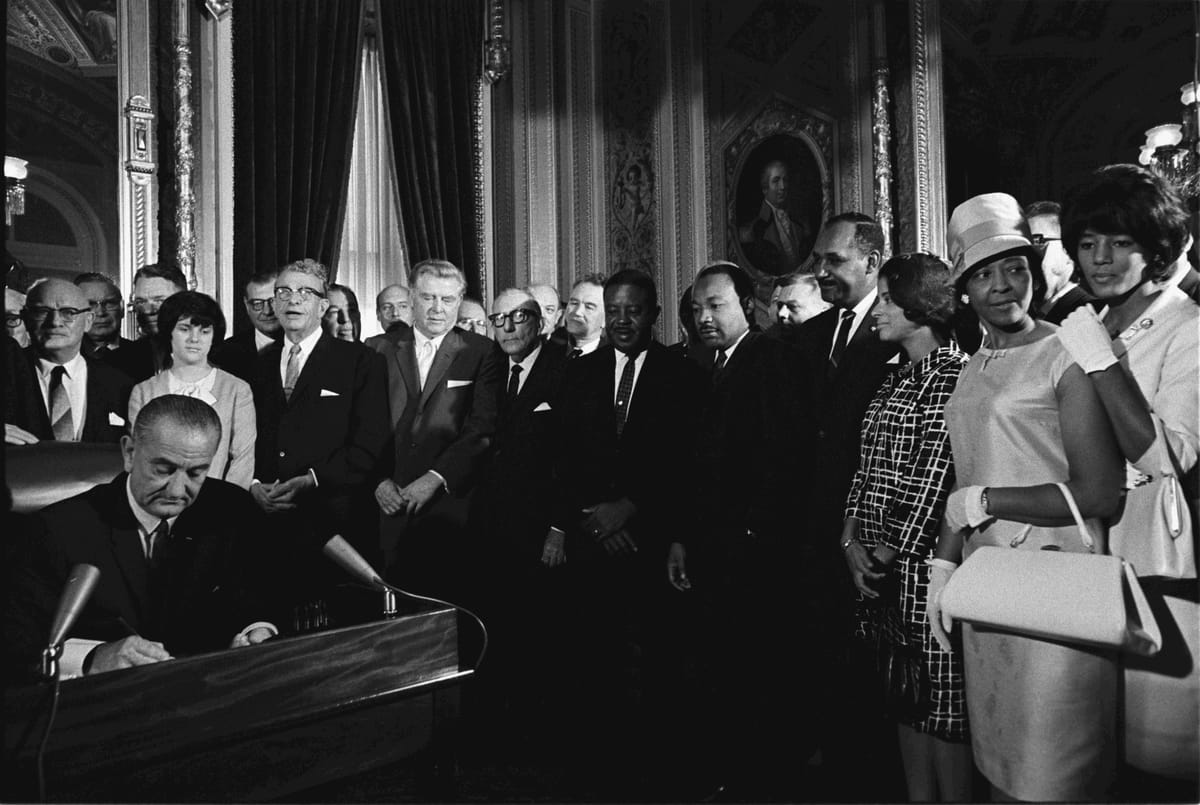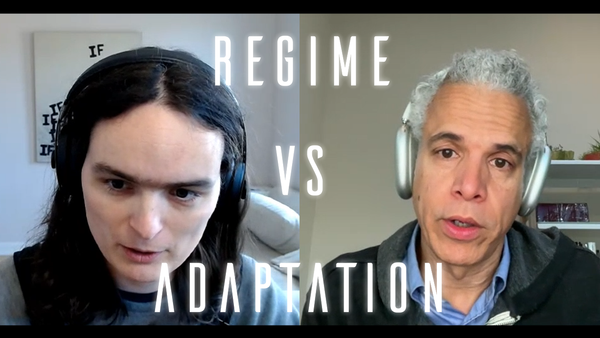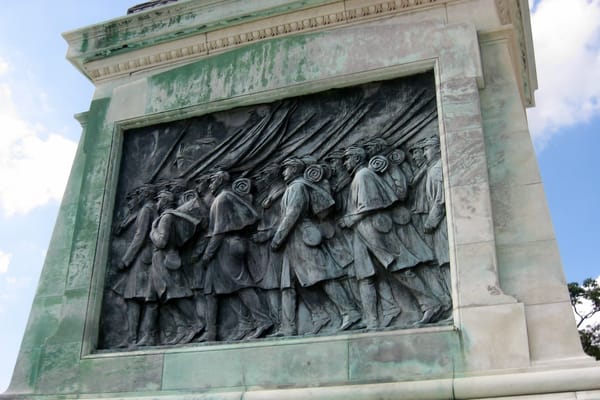Priority One for the Next Democratic President Must Be Restoring Democracy
The Biden years were a missed opportunity, but, as Trump’s authoritarian spree shows, Democrats (and democracy) cannot afford another one.

The 2020 election was a uniquely strange national event. Because it took place amid a once-in-a-century public health emergency, many more voters would cast their votes by mail than ever had before, driving the highest turnout in 120 years. But more than that, and more even than the ongoing pandemic, maybe the most distinctive quality of the 2020 election, as of 2020 writ large, was the sense of its unfolding as an improbably dense succession of disasters.
There were a few obvious landmarks, among them the lockdowns in mid-March and the George Floyd protests in late May that, along with recurrent Covid spikes, defined the balance of a summer that had never really begun and in some quarters never seemed to end. But there was something sociologically unique in American history since the country’s refounding as a pluralistic democracy in 1965 with the passage of the Voting Rights Act and the Immigration and Nationality Act, something that coincided with the announcement of the election outcome late on the morning of November 7, four long days out from the polls closing—large, raucous and spontaneous celebrations that spilled onto the streets of American cities and towns.
I was in Ithaca, New York on November 7, and even in a city of just thirty thousand the celebrations were nonstop through all of Saturday and well into Sunday, with similar scenes playing out across the country. It was as if an enormous relief valve had lifted after a year’s worth of built-up pressure. In retrospect, of course, it seems clear that this moment was precisely that—an expression of almost ecstatic relief at the regime change that morning appeared to promise. Sitting as we are today in 2025, the carefully parsed caution of ‘appeared to promise’ seems only fitting, and the abandon of that weekend almost delusional by comparison. But neither of these futures, lived or imagined, was ever a given.
Almost exactly 31 years earlier, when the Berlin Wall fell on November 9, 1989, there were similar outpourings of people jubilantly chipping off bits of the barrier between East and West Berlin that both signified and reified the Iron Curtain. There was no great mystery as to what was happening, as Germans on both sides of the wall had been living with it since 1961. Its fall marked the end of something so manifestly awful that even not knowing what was to come did little to dampen spirits.
The collective release of millions of people streaming onto American streets on November 7, 2020, quietly underscored the shared psychological toll of the preceding four years. It has become sadly customary, from the more knowing and alarmed perspective of 2025, to sand away the jagged edges of the lived reality of 2017–2019, and especially of 2020 and the first weeks of 2021. But in the throes of 2020, the country came closer than it ever had since 1965 to fundamentally altering its democratic character and turning into something else entirely, something almost unrecognizable. January 6, 2021, only served as an exclamation point on the annus horribilis we had been through. But, as we would soon find out, we had not all lived through quite the same events.
The World Values Survey is a global research project that asks large samples of people across countries containing almost 90% of the world’s population a common set of questions to gauge how values and personal beliefs are changing over time. A Financial Times analysis of the most recent 2023 edition of the survey found that while the US left is very much in the global mainstream, the US right today has more in common with Erdogan’s Turkey and Putin’s Russia than it does with any conservative party anywhere else in the Western world. What this tells us is that, in any binary election in our imperfect first-past-the-post system, what is on the ballot at the presidential level is quite literally the continuation of democratic governance.
The fact that putting up a wall is one of the finer points of what passes for political debate in this environment is perhaps a cruel irony, but what is unmistakable is that any national election in the US, far from representing democratic continuity or renewal, now marks a potential moment of abrupt, even violent regime change. We know this intuitively, which is why no-one seems to roll their eyes anymore when politicians intone that this election is the most important of our lifetimes. Every election has now taken on that level of epochal importance.
The fall of the Berlin Wall and the unipolar world it seemed to herald gave rise to a certain sickness of mind about our relationship with the past and present but especially with the future. This attitude is perhaps best encapsulated by a certain book its author may never live down, made infamous in retrospect, called The End of History and the Last Man. The heady aftermath of November 7 may well have brought on a similar drowsiness, but the reality we’ve now awoken to must put a decisive end to that.
Our problems are daunting and manifold. There is a stacked, intractably corrupt and increasingly servile high court; a Congress hell-bent on giving away even its enumerated powers as a coequal branch of government; and a fourth estate increasingly captured by the very monied interests who should live in fear of it. Even in calmer political waters, addressing any one of these problems would pose a challenge. But now we have the added problem, in some ways the upshot of the three of these, of a democratically elected despot chaotically and maliciously picking apart the state.
Much has already been written and much will surely continue to be written about the Biden years. I won’t pretend to add anything to that vast literature, the fault lines of which are by now only too familiar. My focus will instead be on the future, because the urgent learning of the past decade of American politics is that the party that now stands alone in defense of democratic governance and democratic institutions must govern with uncommon focus and ambition.
The future election of any Democratic president must be a moment of unalloyed and far-reaching democratic restoration. The clock starts ticking on their power the day after they are elected. Any Democratic president who fails to govern with that reality firmly in mind, who fails to bring to bear the fullest measure of their power in undoing the anti-democratic exploits of the deposed regime, must be reckoned a failure. Any future Democratic administration must govern as if it may be the last democratically elected government the country may ever have, precisely because it may.
Featured image is "President Lyndon B. Johnson signs the Voting Rights Act of 1965 while Martin Luther King and others look on," Yoichi Okamoto 1965.




